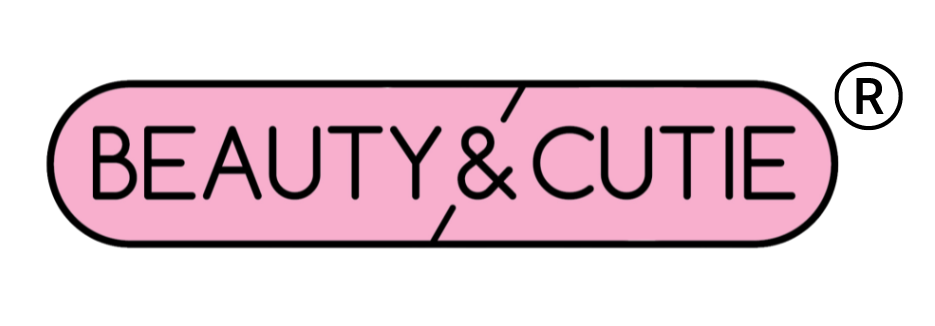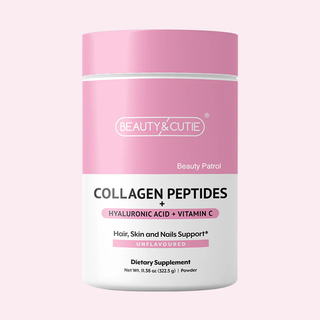Many individuals worry about hair growth, but it can be difficult to locate the proper items that suit your hair type. Fortunately, herbal remedies and other natural cures can be very effective. Herbs have been used for ages in traditional medicine and have strong stimulant qualities that promote hair growth. We'll look at some of the top herbs for hair development in this post and how they can help your hair. There is a herb that can help, regardless of whether your goal is to grow your hair longer, thicker, or stronger. So let's explore the power of nature to achieve healthy, gorgeous hair.
What Types Of Herbs Can Be Used To Promote Hair Growth?
- Rosemary: Rosemary is an excellent herb for promoting hair growth. It contains rosmarinic acid, which has been shown to stimulate hair growth and prevent hair thinning. Rosemary oil can be applied directly to the scalp or added to shampoo and conditioner to reap its benefits.
- Aloe Vera: In addition to promoting hair growth, aloe vera also has anti-inflammatory properties that can soothe an irritated scalp. It can also help to balance the pH of the scalp, which can prevent dandruff and other scalp issues.
- Peppermint: Peppermint oil can stimulate blood flow to the scalp, promoting hair growth. It also has a cooling effect that can soothe an itchy scalp.
- Ginseng: Ginseng also known as "Panax" has been used for centuries in traditional medicine for its hair growth properties. It contains ginsenosides, which have been shown to stimulate hair growth and improve hair thickness.
- Lavender: Lavender oil has a calming effect on the scalp, which can reduce stress and promote hair growth. It also has antimicrobial properties that can prevent scalp infections.
- Saw palmetto: Saw palmetto is a popular herb for preventing hair loss and promoting growth. It works by blocking the hormone that causes hair loss, thereby reducing hair thinning and promoting healthy hair growth.
- Nettle: Stinging Nettle or simply Nettle is a natural source of silica and sulfur, which are essential for healthy hair growth. It also contains vitamins A and C, which can help to strengthen hair and prevent breakage. Nettle tea can be applied directly to the scalp or consumed as a supplement for maximum benefits.
- Horsetail: Horsetail is a herb that is rich in silica, which is essential for hair growth. Silica helps strengthen hair and prevent breakage, leading to longer and healthier hair. Horsetail can be taken internally as a supplement or applied topically to the scalp as a hair rinse.
- Fenugreek: Fenugreek is an herb that is rich in protein and nicotinic acid, both of which are essential for healthy hair growth. It also contains lecithin, which can help to strengthen hair and prevent breakage. Fenugreek seeds can be ground into a paste, applied to the scalp, or consumed as a supplement for maximum benefits.
- Hibiscus: Hibiscus is a natural source of vitamins A and C, which are essential for healthy hair growth. It can also help to prevent hair fall and promote shiny hair. Hibiscus flowers can be boiled and applied to the scalp or consumed as tea for maximum benefits. Hibiscus oil can also be added to hair care products to promote healthy hair growth.
- Ginkgo Biloba: Ginkgo Biloba is another herb that can promote healthy hair growth. It works by improving blood circulation, which can increase the delivery of nutrients to hair follicles. This can result in stronger, healthier hair. Ginkgo Biloba is also rich in antioxidants, which can protect hair follicles from oxidative stress.
- Burdock: Burdock is a herb that is rich in vitamins and minerals, including iron, potassium, and calcium, all of which are essential for healthy hair growth. It also contains inulin, a prebiotic fiber that can promote the growth of beneficial bacteria in the gut, which can improve nutrient absorption and support healthy hair growth. Burdock root can be consumed as tea or taken as a supplement for maximum benefits. It can also be applied topically to the scalp as a hair rinse to promote healthy hair growth.
What Are The Benefits Of Using Herbs For Hair Growth?
In comparison to synthetic hair care products, using herbs for hair growth has many advantages. Herbs are organic and free of dangerous chemicals that might injure the scalp and hair. They include a lot of critical vitamins, minerals, and other nutrients that can hydrate hair follicles and encourage strong hair development. Herbs can help stop hair loss and reduce inflammation on the scalp thanks to their antibacterial and anti-inflammatory qualities.
Additionally affordable and simple to incorporate into your hair care regimen, using herbs for hair growth. The majority of herbs may be purchased at your neighborhood supermarket or health food store and are simple to brew into teas, use topically as hair rinses or incorporate into hair care products. Additionally, using natural remedies can help you live more sustainably and lower your carbon footprint.
How Much Of Each Herb Should Be Used To Promote Hair Growth?
Depending on the type of herb and the application technique, different amounts of herbs can be used to encourage hair growth. For instance, you will need to use more herbs when using them as a hair rinse than when using them as an ingredient in hair care products. Before using any herbs, it's crucial to follow suggested dosages and speak with a healthcare provider, especially if you have any pre-existing medical conditions or are taking medication.
How These Herbs Promote Hair Growth
Herbs help to develop hair by supplying vital nutrients that feed hair follicles, increase blood flow to the scalp, and stop hair loss. Additionally, they have anti-inflammatory and antibacterial qualities that can reduce irritation of the scalp and stop infections.
For instance, rosmarinic acid, which is found in rosemary, can increase blood flow to the scalp and promote hair growth. Menthol, which is present in peppermint, can stimulate blood flow to the scalp and encourage hair growth. Vitamin C, which is abundant in amla, helps to build hair follicles and stop hair loss.
A prebiotic fiber called inulin is also included in plants like burdock, which helps enhance nutrient absorption and promote the growth of good hair. DHT is a hormone that can both cause hair loss in men and women but can also be prevented by herbs like saw palmetto.
What Are The Best Ways To Use Herbs For Hair Growth?
There are many different ways to use herbs for hair growth, and the best method depends on the type of herb and your personal preferences. Here are some popular options:
- Herbal teas: Brew a strong tea of your chosen herb and use it as a hair rinse after shampooing. Leave on for a few minutes before rinsing out with water.
- Hair masks: Mix your chosen herbs with a carrier oil like coconut oil or olive oil and apply it to your hair and scalp. Leave on for 30 minutes to an hour before washing out with shampoo.
- Infused oils: Infuse your chosen herbs in a carrier oil for several weeks and use them as a scalp massage oil or as a pre-shampoo treatment.
- Hair care products: Look for hair care products that contain natural herbs and botanicals, or add your own herbs to your existing hair care products.
Remember, consistency is key when using herbs for hair growth. It may take several weeks or even months to see results, so be patient and stick with it.
Are There Any Side Effects To Using Herbs For Hair Growth?
Even though herbs are typically safe, it's still important to use caution when using them. Before applying any herbs to your scalp or hair, try them on a small patch of skin to see whether you are allergic. Before introducing herbs into your hair care routine, it is best to speak with a healthcare expert because some herbs may interact with specific drugs or medical conditions.
Conclusion
Adding herbs to your hair care routine might be a simple and efficient technique to encourage hair growth. Herbs with qualities that help enhance circulation, boost blood flow, strengthen hair follicles, and inhibit the creation of DHT include rosemary, peppermint, amla, burdock, and saw palmetto.
Herbal teas, hair masks, infused oils, and hair care products are just a few of the various ways that herbs can be utilized to promote hair development. When using herbs to promote hair growth, it's crucial to be persistent and patient. Before use, test a small patch of skin and speak with a healthcare professional. You may get healthy, luscious locks with the appropriate medicines and techniques.
Final Thoughts
At Beauty and Cutie, we specialize in promoting natural beauty and hair growth. Our collagen powders are designed to enhance the health of your hair, skin, and nails from within. This isn’t just another beauty product—it’s a commitment to unlocking your true radiance and maximizing your potential. Trust Beauty and Cutie to help you look and feel your absolute best.
Sources
- https://www.elle.com/beauty/hair/a38603963/rosemary-oil-for-hair/
- https://www.healthline.com/health/aloe-vera-for-hair
- https://greatist.com/health/peppermint-oil-for-hair
- https://www.stylecraze.com/articles/lavender-oil-for-hair/
- https://www.bensnaturalhealth.com/blog/saw-palmetto-for-hair-loss/
- https://www.bebeautiful.in/all-things-hair/everyday/3-benefits-of-ginseng-for-hair
- https://wellnesse.com/blogs/health/nettle-hair-growth
- https://prose.com/blog/what-is-horsetail-good-for.php
- https://www.hairmdindia.com/blog/fenugreek-seeds-for-hair-benefits-and-side-effects/
- https://www.forestessentialsindia.com/blog/hibiscus-for-hair.html
- https://www.naturallycurly.com/curlreading/learn/ginkgo-biloba-for-hair-growth
- https://better-notyounger.com/blogs/the-better-blog/5-reasons-we-love-burdock-root-for-our-hair
*These statements have not been evaluated by the Food and Drug Administration. This product is not intended to diagnose, treat, cure or prevent any diseases.


